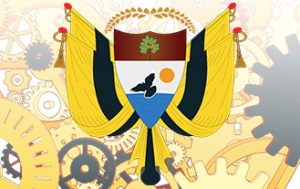Liberland And Its Bitcoin Economy

It seems like a country that could adopt bitcoin as its national currency, would be more of a dream than a reality. After all, economic systems and fiat currency are well entrenched even in the most volatile nations on earth. But what if the country aiming to adopt bitcoin as its national currency was in the process of being established? This is the story of Liberland, Vít Jedlička’s brain child.
The Case for Liberland
Although Liberland is still far from complying with the Montevideo criteria to proclaim itself as a country, – it still doesn’t have a permanent population, and some may argue it doesn’t have a government – its leader, Vít Jedlička, has already claimed a disputed territory as Liberland’s land. The territory in question, is a 7km^2 piece of land along the Danube River – an international water way – that remains unclaimed as a result of a border dispute between Croatia and Serbia. The territory is within the internationally recognized border of Croatia, but since both Serbia and Croatia are still disputing the validity of their current borders, Croatia has not declared its sovereignty over the small pocket of land out of fear that this would tacitly convey acceptance of the disputed border as it stands today (Rossman, 2016).
The Gamble for Terra Nullius
If Jedlička’s terra nullius argument is accepted, due to the fact that neither Croatia nor Serbia have claimed this piece of territory as part of their country, then Liberland could become a reality. This is when bitcoin will start playing a more significant role in the nation building effort, apart from the role it has taken on as a tool to promote the project in various ways up until now. Liberland would certainly be an incredible experiment for bitcoin and cryptocurrency enthusiasts to witness. For economic analysts, the experiment will afford an opportunity to understand firsthand the effects of a deflationary currency on the economy of a nation. Other examples in history have shown serious shortcomings.
The Advantages of Bitcoin
Nevertheless there are a few advantages that bitcoin could bring to the table as the official currency of a new country like Liberland. Although the mother of all cryptocurrencies was designed precisely to sidestep many of the obstacles that exist when dealing with traditional fiat currencies backed by a nation’s central bank, bitcoin is already much more widely accepted than any other currency that Liberland could come up with. This is especially true given the fact that its purported libertarian credentials would not make it a good suitor to adopt the Euro or any other fiat currency backed by another nation’s central bank.
This could put Liberland at the forefront of international trade, especially if it provides services for customers in other countries to buy over the internet. It could also give Liberland huge advantages in terms of having the strongest currency in terms of counterfeit safeguards, and it could even serve to further bitcoin’s power as an instrument of Foreign Direct Investment – FDI. The idea of making FDI a peer to peer, bitcoin based endeavor could have game changing ramifications in the way the world does business.
It is Still a Dream
Despite all the exciting new ways in which this national experiment could contribute to the study of the influence of cryptocurrencies on the world economy, Liberland faces almost insurmountable obstacles to its establishment. The legal basis for its existence is not iron clad, and Croatia will do anything in its power to prevent its establishment. But if Liberland does surprise the international community, its adoption of bitcoin as its national currency will provide a unique point of reference that will help us all understand the economic dimensions of the peer to peer money revolution better.
Click here to read a comprehensive article on the legal basis for the establishment of Liberland – quoted within the article.







